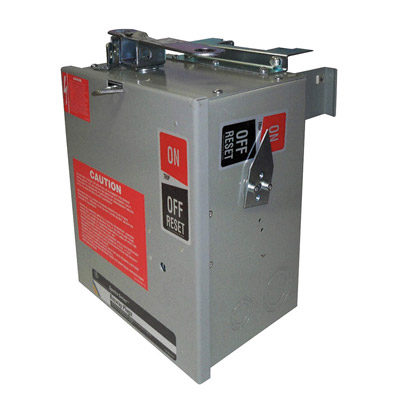Bus Plugs: Electrical Components

Bus Plugs: What You Need to Know
In electrical systems, bus plugs play an important role as electrical components in power distribution by providing a secure and efficient means of connecting electrical loads to the main power source. Bus plugs are electrical components that can be used in a wide variety of applications, from industrial facilities to commercial buildings.
In this blog post, we will provide an overview of bus plugs, explain their function in an electrical system, and discuss the different types of bus plugs that are available.
What is a Bus Plug?
Bus plugs are electrical components that connects an electrical load to a busway, which is a prefabricated electrical distribution system. Bus plugs typically consist of a housing, which contains the electrical components, and a plug or connector, which connects the bus plug to the busway. Bus plugs may also include fuses or circuit breakers to protect the connected load from overcurrent.
What is the Role of a Bus Plug in an Electrical System?
The main function of a bus plug is to provide a safe and reliable means of connecting electrical loads to the main power source in an electrical system. By connecting loads directly to the busway, bus plugs eliminate the need for long runs of cable, which can be expensive and difficult to install. Bus plugs also make it easy to add or remove loads from the electrical system, as they can be quickly disconnected and reconnected as needed.
Types of Bus Plugs:
Plug-In Bus Plugs: Plug-in bus plugs are designed to be easily plugged into and removed from a busway. These bus plugs typically have a molded plastic housing, which contains the electrical components, and a plug or connector, which connects the bus plug to the busway. Plug-in bus plugs are available in a variety of configurations and can be customized to meet the specific needs of an application.
Bolt-On Bus Plugs: Bolt-on bus plugs are designed to be permanently attached to a busway. These bus plugs typically have a metal housing, which contains the electrical components and are secured to the busway using bolts or other fasteners. Bolt-on bus plugs are often used in applications where a more secure connection is required.
Fusible Bus Plugs: Fusible bus plugs are designed to provide overcurrent protection to the connected load. These bus plugs typically have a fuse holder, which contains a fuse that will blow if the current exceeds a certain level. Fusible bus plugs are often used in applications where protection against overcurrent is critical.
Circuit Breaker Bus Plugs: Circuit breaker bus plugs are designed to provide overcurrent protection to the connected load. These bus plugs typically have a circuit breaker that will trip if the current exceeds a certain level. Circuit breaker bus plugs are often used in applications where protection against overcurrent is critical and the ability to reset the breaker is important.
Key Takeaways
Bus plugs are an essential component in any electrical system that requires power distribution. By understanding the different types of bus plugs that are available, and their functions in an electrical system, you can ensure that your system is designed and maintained for optimal performance and safety.
At Triple C Electric, we offer a wide range of bus plugs and other electrical components to meet the needs of any application. Contact us today to learn more about our products and services.


